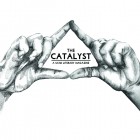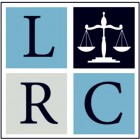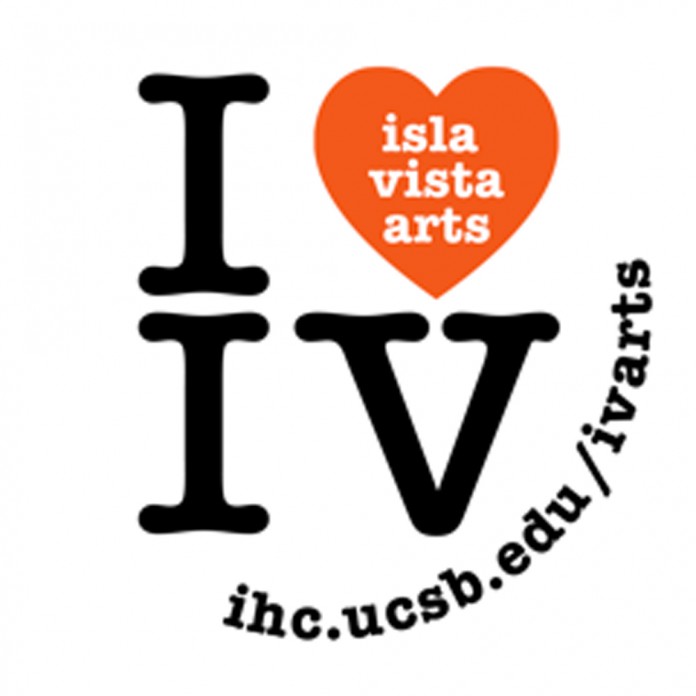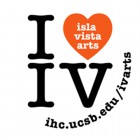Initiatives:
The Student Union Revitalization Fund (SURF) Initiative
1) Why is the SURF fee on the ballot?
Because this campus needs a Preventative Wellness Center
Because this campus needs more CLAS rooms
Because this campus needs a bigger Food Bank to address hunger
Because this campus needs a permanent Veteran’s and Transfer Resource Center
Because this campus needs space for student groups to meet for free
Because this campus needs space for sustainability activism
Because this campus needs additional 24 Hour Study Space
Because this campus needs additional space for Counseling Services
SURF began because a wide variety of students and organizations on campus had various unmet needs, it was the combination and magnitude of these needs that put student leadership into action to address them permanently and adequately. After hearing the diverse needs on campus, working them into a proposal to revitalize the UCen was the most cost effective mechanism to meet the needs of underserved students.
SURF has been designed with student input gathered since 2012, with the bulk of the work carried out in Summer and Fall 2013 by Associated Students through a partnership with Student Affairs and the UCen.
A 2012 survey shows 81.6% of students would use a new 24-hour study space (33.3% said they would definitely utilize such a space). SURF will provide this and cater it directly to the vision of students.
That same study indicates support for a wellness center (also a main feature of SURF). Preventative wellness is becoming an increasingly important and urgent need. Students’ lives and academic experiences are negatively affected by a lack of spaces that promote wellness.
Similarly, emerging student populations on campus (such as student veterans, former foster youth students, transfer students, etc.) require specialized resources. SURF will also address this void on campus by providing resources for emerging student communities that are currently underserved.
Finally, SURF will also provide permanent and sustainable space for programs and services that students have already indicated are needed on campus such as CLAS, the A.S. Food Bank, the Environmental Affairs Board, the A.S. Bike Shop, etc. as well as more space for students and student groups to meet.
2) What exactly would the fee go toward?
As for the $20.51 portion it goes mainly towards the planning process of designing the remodeled UCen. A small portion goes toward current operating costs of the UCen to bring some new programs/services (voted and created by students) immediately.
The bulk of the $64.41 fee starting in Fall 2018 will provide for the development and operation/maintenance of a space that will serve the aforementioned functions. The operating funds are important because they will reduce reliance of the UCen on business revenue and more on student needs and priorities, essentially “buying back” the UCen.
The SURF Initiative doesn’t just give the UCen a facelift or adds-on a couple new services, but it transforms the facility into one that puts students first. This plan sets us on a course to place the University Center directly in the hands of the students. Students for so long have expressed frustration with the UCen’s decisions; you can see it by just perusing the AS Candidate Statements for as long as the record goes (2004). SURF changes this by increasing our share of the budget, so that students, not revenue from sales, become the focus of the UCen Budget.
SURF is critical to the well-being of future students.
– AS President Jonathan Abboud

Support Queer Commission and LBGTQ Students at UCSB
1) Why does QComm need this reaffirmation to pass?
“Queer Commission has seen cuts to its budget every year for the past few years now. Last year, we hit a breaking point where our budget was proposed to be cut to an all-time low. We fought back and were able to reduce the cut, but nonetheless our budget was still negatively impacted. This year, we decided to go straight to the student body for support. This way, the student body can decide collectively if a strong Queer Commission is valuable to this campus. This also requires Queer Commission to campaign for reaffirmation every two years, which is a great opportunity to continue exposing the larger UCSB community to Queer Commission, the work it does on campus, and various issues affecting LGBTQ students here.”
2) What exactly would the fee go toward?
“The fee would go towards the events, conferences/conference delegations, programs, and projects Queer Commission’s elected board organizes yearly and to the various LGBTQ student organizations on campus for their events and programs, of which there are about 10 that organize regularly on campus and are constantly growing. Because of budget cuts across A.S. and to QComm’s budget, we have had to greatly limit the scope of our programs and projects, from cutting projects and student delegations to conferences to severely downsizing UCSB Pride to restricting the amount of funding we can provide to the LGBTQ student organizations and so on. If passed, this fee would allow us to revitalize, enrich, and expand the work we do on this campus for the larger LGBTQ community and towards making UCSB a more inclusive and supportive campus for all its students.”
– Andrew Farkash, QComm Co-Chair
1) Why does the composting initiative need this measure to pass?
“Many students don’t realize the sheer volume of food and compostable products produced at UCSB every day… The last year in particular has seen a huge increase in the amount of food waste UCSB is keeping out of the landfill, and frankly we are having trouble keeping up. Students are constantly asking us for more compost drop-off bins on campus so they don’t have to choose between walking halfway across campus or throwing food in the garbage, but current funds simply don’t allow us to purchase enough pest-proof, odor-proof bins or support the staff necessary to manage additional locations. This fee measure will help bring our funding up to the level needed to manage a compost program as big as UCSB’s has become. This fee measure will also allow us to expand our program’s focus [and] help involve more students in our program.”
2) What exactly would this fee go toward?
“This fee will fund the Associated Students Department of Public Worms, which operates several worm compost bins and compost piles, and seeks to educate the student population about the importance of composting and waste reduction. DPW has been a driving force in encouraging composting all across campus and partners with major sources of food waste such as the dining commons. Our goals with this funding are to: 1) Add more compost pickup locations around campus, 2) Provide more student employment in sustainability related fields, 3) Help students learn to compost at home by offering more workshops, and 4) Use compost to grow food through a demonstration farm and improving food security.
Together, these goals will help us reduce the total waste produced by UCSB and encourage sustainable practices. Students will also be able to better connect with their food, food waste, and environment, and will learn all the great ways that composting can make a difference!”
– DPW student coordinator Debby Portillo and Recycling/DPW staff coordinator Sarah Siedschlag
The Senior Book
1) Why does the Senior Book need this reaffirmation to pass?
“The Senior Book, which is the only documentation of each senior class’s legacy at UCSB, celebrates and applauds seniors on the accomplishment of graduation. At commencement, graduating students will be able to purchase and pick up their Senior Books as a lasting commemoration of their college experience. While flipping through its pages, students will not only reflect upon UCSB events including Halloween and Deltopia, but also be reminded of the pride and intelligence of being a gaucho as well as the Isla Vista culture. Without a doubt, the college years are some of the most memorable and exciting times of a person’s life. After graduation, the Senior Book is the only item that allows graduating gauchos to reminisce on these memorable experiences down the line and carry on the legacy of the senior class.”
2) What exactly would this fee go toward?
“The funding is needed for the survival of the Senior Book. The funding is crucial to continuing the tradition of producing commemoration for graduating students in years to come. This lock-in fee will help cover the cost of designing, priniting, marketing, and staffing, and will enable every senior to take on-campus Senior Portraits for 6 weeks during the year and be included in the Senior Book.”
– Senior Book Student Staff Members Andi Dominguez and Kara Samuels, and Senior Book Advisor, Linda Meyer
 Catalyst Literary Arts Magazine
Catalyst Literary Arts Magazine
1)Why are you campaigning for a lock-in fee?
“The Catalyst is campaigning for a lock-in fee to ensure its ability to publish and distribute several thousand copies of an interdisciplinary, free-to-students, full-color literary arts magazine on a quarterly basis. Where other campus publications focus on student journalism, our aim is to showcase student literature and student visual art (painting, drawing, photography, etc.). With this goal in mind, and with the enormous amount of incredible student art we intend to publish, printing costs are significant. With this low-cost-per-student lock-in, our magazine could bring great student art to more people than ever, and our ever-growing student staff could focus all of its energy on content editing, layout editing, and our other community and academic outreach goals; these latter goals include online and event endeavors to support art not tethered to the page, such as film, spoken word poetry, and music.”
2) What exactly would the fee go toward?
“First and foremost, the fee would go toward printing. Our organization’s relationship with a California-based printing company has allowed us to produce low-cost magazines of the highest quality without the dubious ethics of overseas print shops. With a regular funding source, more copies could be produced than ever before and with greater regularity, and that increased production equals more exposure for the student art we are supporting. Secondarily, the funds would go toward various projects and goals of our organization, among which are a designated campus workspace, the support of local bands, filmmakers, and performing artists both online and through events. Professional editing and publishing practice, in addition to collaboration with other campus art or departments are part of the staff experience.”
– Editor-in-Chief Natalie O’Brien and Managing Editor Daniel Podgorski
 Legal Resource Center: Sobering Center
Legal Resource Center: Sobering Center
1) Why are you campaigning for a lock-in fee?
“I am campaigning for the sobering center because over the past 8 months working at the AS Legal Resource Center, most students who receive an MIP (minor in possessions) or DIP (drunk in public) tell me they were picked up by the police while harmlessly walking (read: stumbling) home from a party. We’ve all been that person late on a Friday or Saturday night, and I think the Sobering Center provides a safe place for students to sober up, learn a lesson, and move on with their lives.”
2) What exactly would the fee go toward?
“The fees will go towards the creation of a Sobering Center, a place where UCSB students who are picked up by the police for non-violent alcohol related offenses can spend the night sobering up, as opposed to the “drunk tank” downtown. Using the sobering center would incur upon the student a significant fee (but one still cheaper than going to court) and require them to attend an alcohol education course. A night in jail is an extremely harsh experience for students and the court process is often very disruptive to a students course schedule. The sobering center can only be used once in a student’s college career, and repeat offenders will go through the arduous court process. The fee and required alcohol program still provide an hefty incentive to drink responsibly.”
– Kevin Dibb, LRC Student Legal Advisor
Reaffirmations:
Educational Opportunity Program (E.O.P)
1) Why does IV Arts need this reaffirmation to pass?
“The purpose of it is to give somebody something else to do on a Friday night besides drink. Not that we’re against drinking, but it’s something else to do besides going to a party. We need the support. WORD is probably more popular than we ever imagined. And IV Live is doing really well too.” – DJ Palladino, Magic Lantern Films events manager
2) What exactly has the lock-in fee money gone toward in the past two years, and will the funds be used in the same way next year if it passes?
The IV Live Reaffirmation would benefit Magic Lantern Films, WORD Magazine, IV Live, and Nuestra Voz, and Shakespeare in the Park.
Finance Board
Food Bank
1) Why does AS Food Bank need this reaffirmation to pass?
“The AS Food Bank needs this fee reaffirmation because we currently have over 750 visits to our pantry every week. It is a safe space for students to come in and alleviate stress. We have seen the number of students who use the food bank rapidly increase since we opened 3 years ago. Due to the high number of students depending on the service, our fee initiative no longer covers food costs for the year. Without this lock-in, there would be no way for the food bank to continue operating at its current level.”
2) What exactly has the lock-in fee money gone toward in the past two years, and will the funds be used in the same way next year if it passes?
“The majority of the funds from the lock-in have gone to food, career staff, student staff, and transportation of food purchased. The funds will be used in the same way next year. We are looking to increase our volunteer base in the future and transfer some staff costs over to the food section of the budget if possible.”
– Erick Lankey, AS Food Bank Committee Chair



















